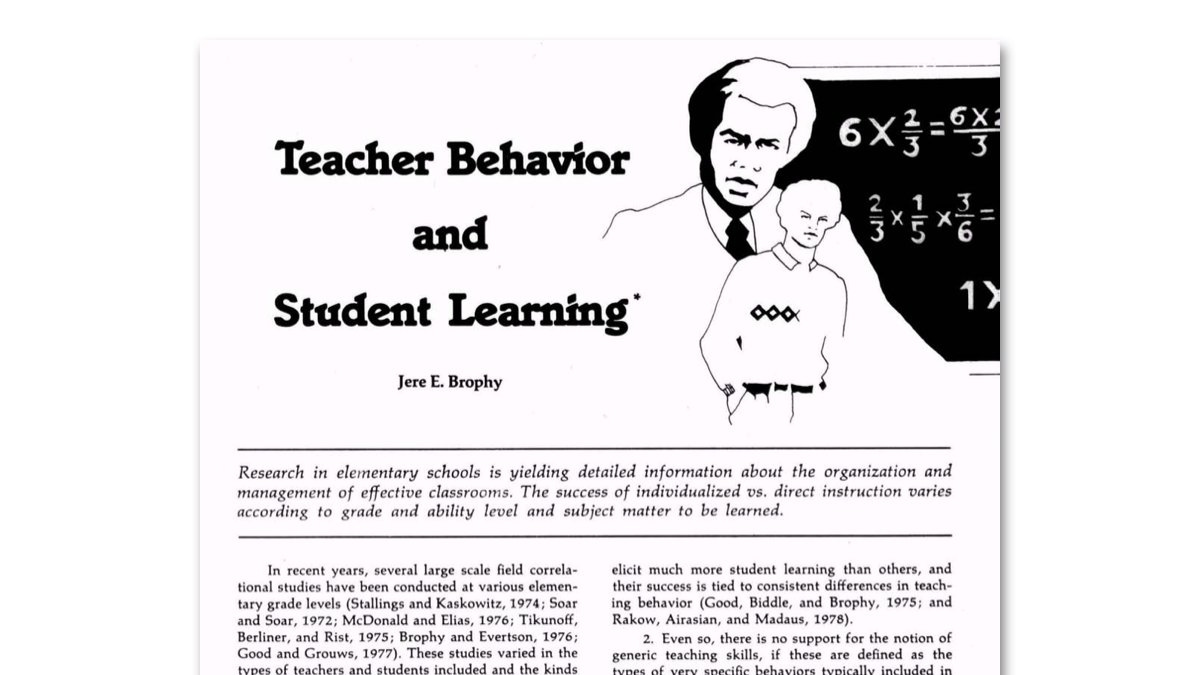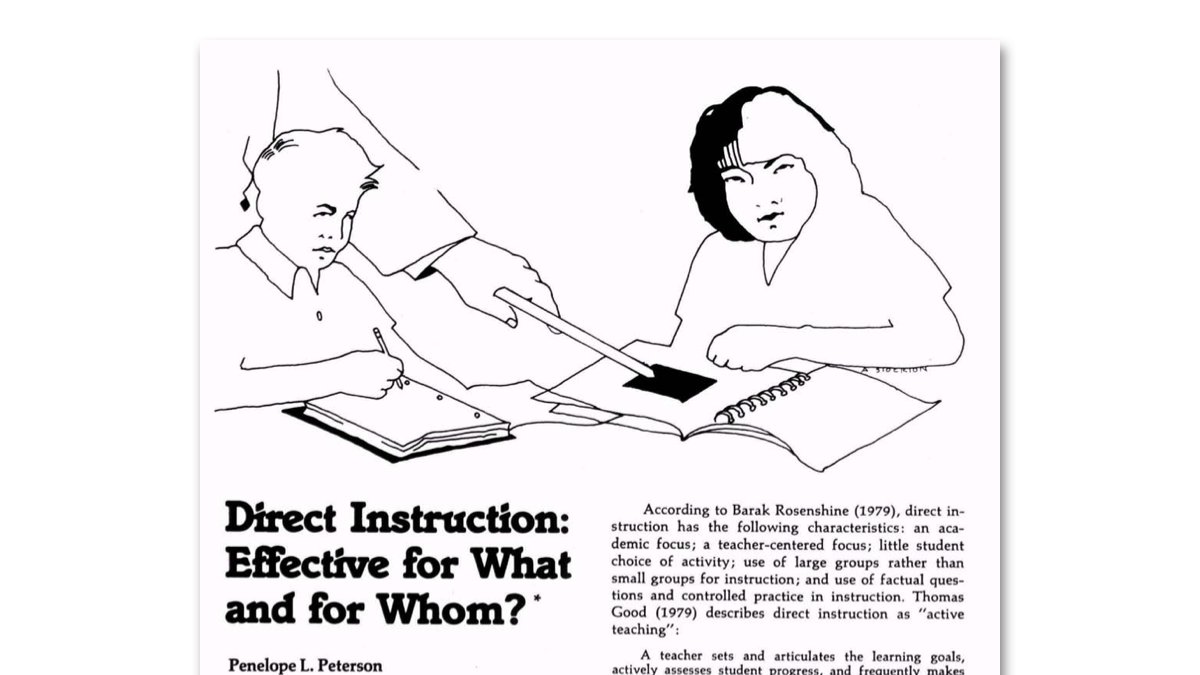
The daddy of teaching expertise papers
🎓Describing the behavior and documenting the accomplishments of expert teachers by David Berliner
researchgate.net/publication/23…
It includes of of my favourite research stories... [brief thread]
🎓Describing the behavior and documenting the accomplishments of expert teachers by David Berliner
researchgate.net/publication/23…
It includes of of my favourite research stories... [brief thread]

In 1988 Berliner asked a bunch of expert teachers to teach a short lesson to an unfamiliar group of pupils.
Despite performing well, one teacher walked out, another ended up in tears, and all were unhappy they participated!
Despite performing well, one teacher walked out, another ended up in tears, and all were unhappy they participated!
💡Lesson:
Expert teaching entails specific knowledge about the pupils being taught: what they know, what motivates them etc.
When you remove this, you inhibit superior performance.
And piss expert teachers right off.
Expert teaching entails specific knowledge about the pupils being taught: what they know, what motivates them etc.
When you remove this, you inhibit superior performance.
And piss expert teachers right off.
One of the big questions this raises is the value of 'interview lessons'.
Schools may get a better sense of a teacher potential by watching a video of them interacting with their current pupils, rather than asking them to teach a group they don't know.
Schools may get a better sense of a teacher potential by watching a video of them interacting with their current pupils, rather than asking them to teach a group they don't know.
• • •
Missing some Tweet in this thread? You can try to
force a refresh











